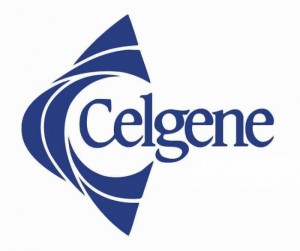 Celgene is considering purchasing Sutro Biopharma, a company that they have collaborated with on development deals over the last two years.
Celgene is considering purchasing Sutro Biopharma, a company that they have collaborated with on development deals over the last two years.
The potential deal may exceed more than $1 billion in total for the South San Francisco-based Sutro, in exchange for control of the company’s antibody-drug conjugates and bispecifics. Celgene is looking to expand the collaboration in order to include immuno-oncology drugs.
The development deal between the two companies stipulates that Sutro will receive $95 million from Celgene up front, including an equity stake, potential milestones, and $90 million for research studies. The total deal will be worth more than $1 billion. Despite the acquisition, Sutro may be able to maintain some of the commercial rights for its products. The purpose of the deal is to advance the development of a first-of-its-kind immune treatment for cancer, PD-1 and PD-L1 targets, which both companies believe is a promising field.
Sutro has been working on the development of precise cancer-killing dugs called ADCs, which feature cancer cell-killing constructs made up of a targeting antibody and use a novel technique of biochemical synthesis, as well as bispecifics. The therapy uses biochemical synthesis in order to create a more accurate and simple genetically engineered medication than those currently available. Not only is Celgene interested in this technique, but also Johnson & Johnson, Sanofi, and Merck KGaA as well.
“The consensus is that’s a bit of a given now,” said Trevor Hallam, the CSO of Sutro, in a press release, who explained that several precedents revealed checkpoint inhibitors from enterprises such as Merck, Bristol-Myers Squibb, and Roche that may be able to improve overall patient survival. Moreover, their technology may be able to rapidly develop candidates that bind or avoid target sites on checkpoint pathways.
The main purpose is to create breakthrough, next generation therapeutics able to direct the “common and limiting side effects,” as well as fine-tuning the therapy. Sutro is planning to grow based on their novel technique over the next 18 months, as they currently have 70 staffers, and believe this number will be increased by both the Celgene programs and the collaboration with Merck KGaA. “It’s really an important deal for our company,” said CEO Bill Newell.
“Substantive progress and unique advantages of Sutro’s platform have led us to expand and extend our relationship, as a key capability supporting our emerging immuno-oncology pipeline,” said the R&D chief of Celgene Tom Daniel. “We see this collaboration as a unique opportunity to accelerate the evaluation and development of important products in this and other strategic areas of high potential impact. Sutro has been a strong partner expanding a potentially disruptive technology, and we look forward to building on the existing collaboration.”
The trial is part of Celgene’s efforts to reinforce their work in the immuno-oncology field and develop patients for several tumor types, such as HER-2 negative metastatic breast cancer, pancreatic cancer, and non-small cell lung cancer.


